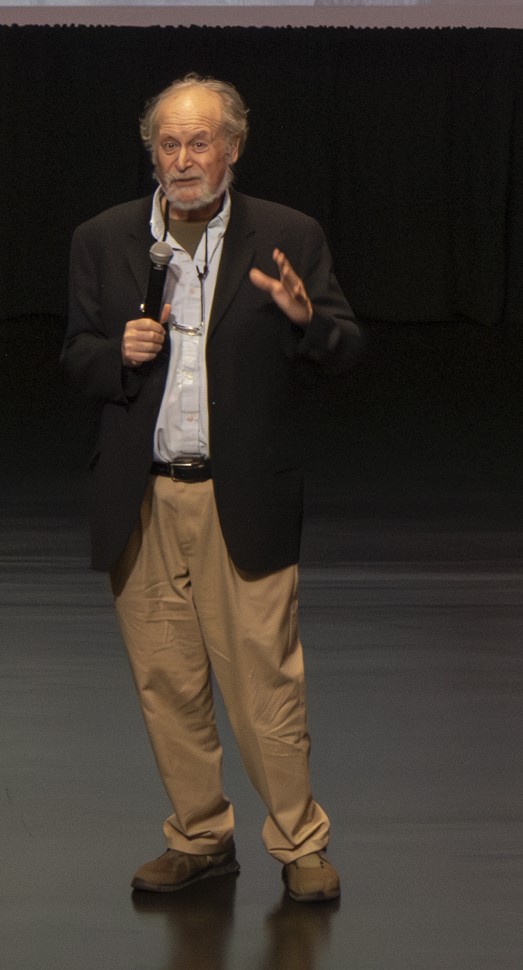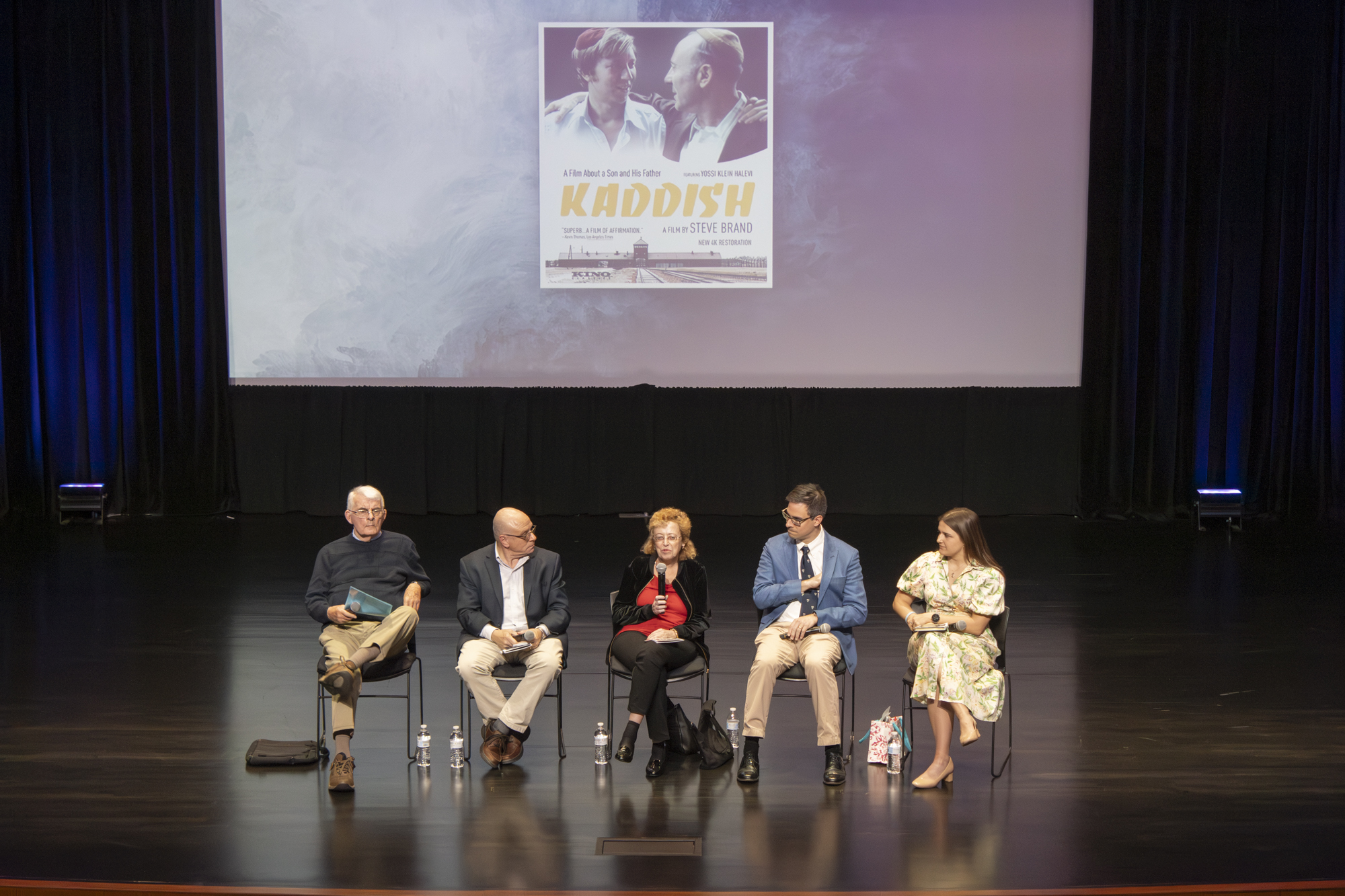The Arts at Millersville University held a screening of the documentary “Kaddish” downtown at the Millersville University Ware Center Wednesday evening.
“Kaddish” was originally funded by grant money from the National Endowment for the Humanities. The version presented at the Ware Center was restored from the original film into a high-resolution format.
The screening was the final “On Screen/In Person” event of the 2024-2025 season and the final event of Millersville University’s Holocaust and Genocide Conference.
The screening was preceded by a panel of professionals who had watched the film before the event. The panel included Jack Fischel, professor emeritus of History at Millersville University and founder of the Holocaust and Genocide Conference; Victoria Khitterer, professor of History at Millersville University and co-chair of the conference; Julia Fallows, senior at Millersville University; Rabbi Jack Paskoff of the Congregation Shaarai Shomayim and Dr. Jeff Mufson, a psychiatrist. Following the film, a Q&A session was held with the film’s director, Steve Brand.
The film follows the life of Yossi Klein, the son of Holocaust survivor Zoltan Klein, who escaped being sent to a concentration camp by hiding in the woods for several months. The film centers around Yossi Klein’s relationship with his father, and the impact of hearing about the Holocaust from him throughout his childhood.
The panelists painted a picture of familial relationships among Holocaust survivors and their children. Mufson offered an overview of the psychological studies performed on many children who heard about the Holocaust from family members. They often began to be affected by the stories. Many, including Yossi Klein, reported having nightmares of concentration camps or being chased by Nazis. Some Holocaust survivors were silent on their experiences with their children.
Much of the younger generation, according to Fischel, has less knowledge of the Holocaust. He said Jews descended from Holocaust survivors are often identified by how many generations removed they are from the genocide. Many younger Jews, three generations removed, are more detached from it, he said.
“People discuss it, but more calmly,” Khitterer said. She and other panelists said that the lack of Holocaust education in schools is a problematic aspect of the current educational landscape.
One of the major events touched on in “Kaddish” is Yossi Klein’s participation in the “Soviet Jewry” protests, which opposed the treatment of Jewish people in the Soviet Union and advocated for their ability to leave the country up until the 1980s. According to Paskoff, it was the longest sustained series of civil rights protests in the United States.
Khitterer described the situation for Soviet Jewish people as being stuck in the country despite being persecuted by it. Holocaust survivors returning to the Soviet Union in 1945 after Nazi Germany’s defeat were faced with their property having been taken by others, and continued mistreatment by the government and their neighbors. Emigration out of the country to Israel was restricted by the government to only those with invitations from family members living there.
“Even police had nicknames for us,” Khitterer said.
One focus of the panel was the relevance of the film today. A notable sentiment from Zoltan Klein was a lack of desire to have children before having Yossi, out of a lack of hope for the world. Paskoff said that many young couples today have similar sentiments.

Brand discussed working alongside Yossi Klein documenting his and other families up until Zoltan’s death during the film’s production, which caused Brand to take over the project. After the loss, the other families were dropped, and Yossi Klein was made into the main character.
“I feel honored to have had the trust from him and his family.”
A frequent subject of the Q&A was Yossi Klein’s more extremist tendencies. Brand said he was part of JDL (Jewish Defense League), an organization which Brand said condoned violence to combat anti-Semitism. Brand said that Yossi Klein was not involved in the organization’s deadly bombing attack. During the film, he was depicted as being pessimistic about human nature and the future of civilization. He believed during the later part of the film, which took place in the 1980s, that another Holocaust was imminent.
Brand, however, said that many of his beliefs have changed. He said that Yossi Klein believes that Israel should be more democratic and that he has participated in protests against Israel’s current President Benjamin Netanyahu.






